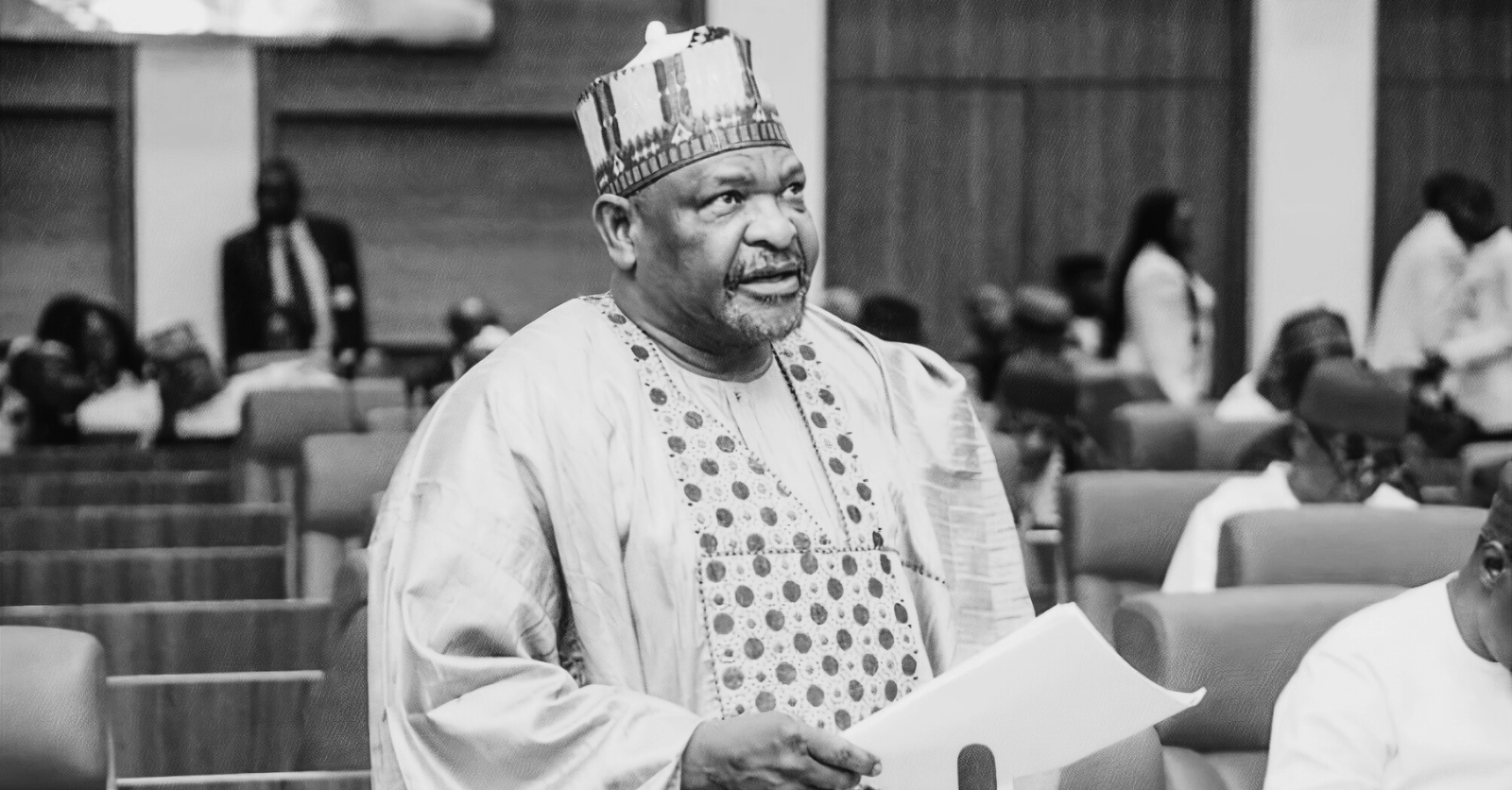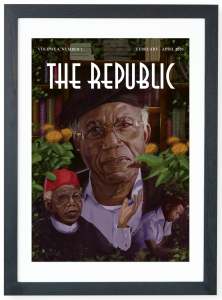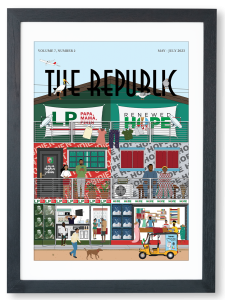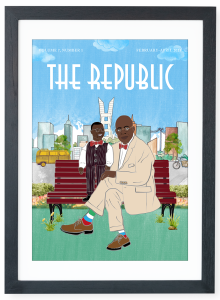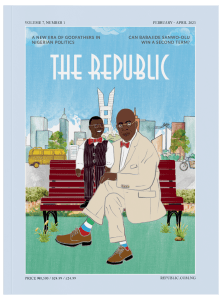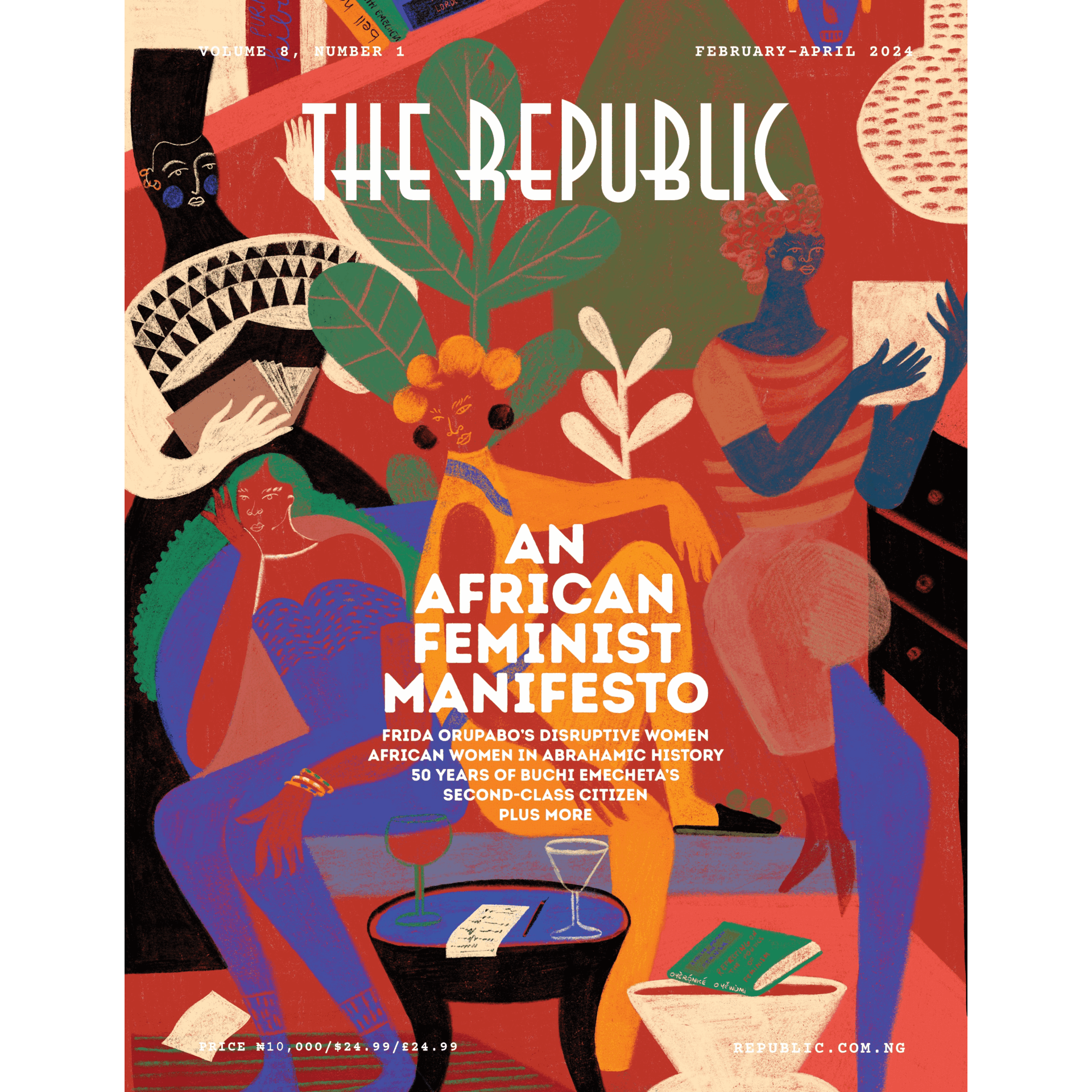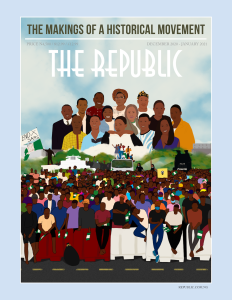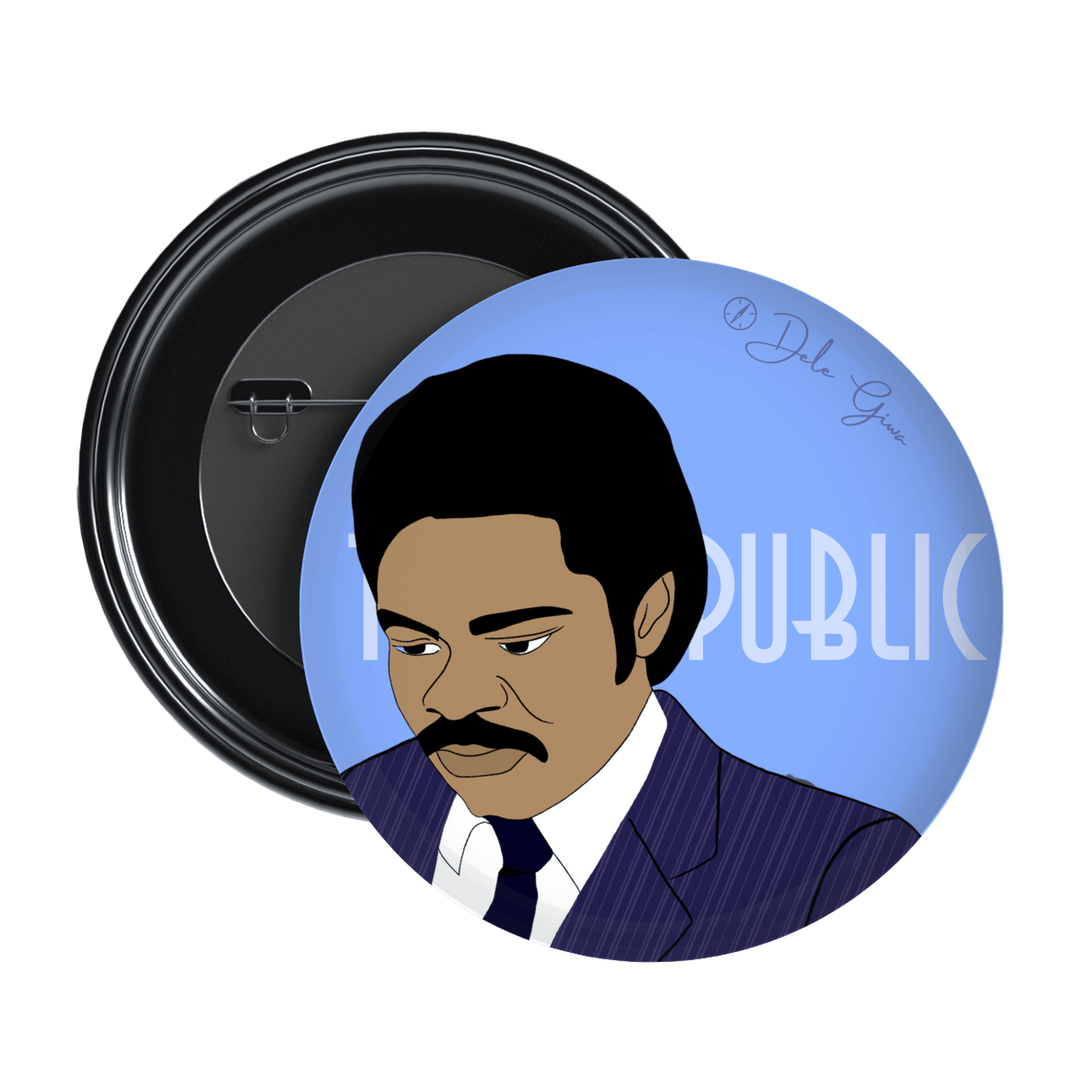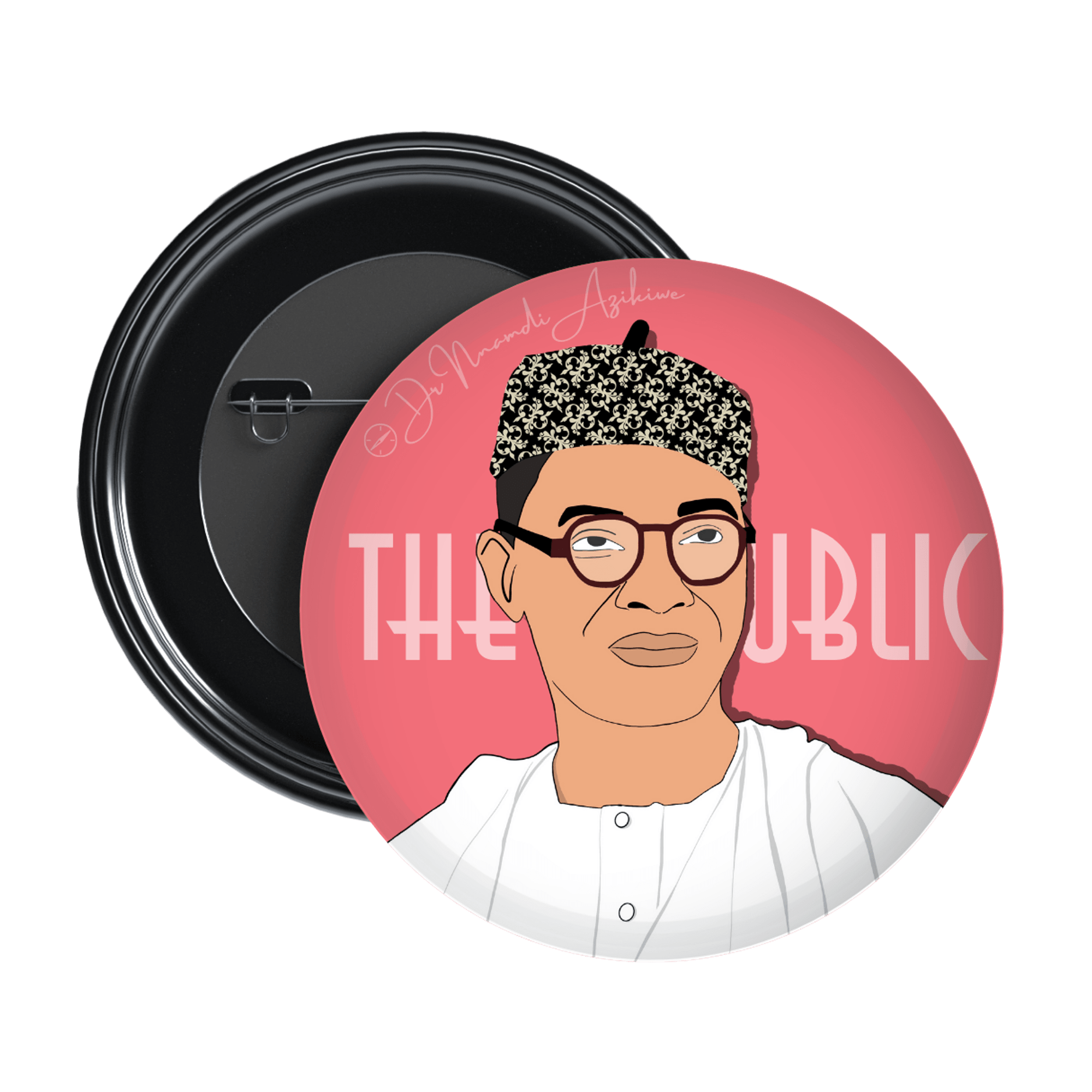THE MINISTRY OF POLITICAL AFFAIRS
The Accidental Man of the People
It’s difficult to tell what was going through the mind of Abdul Ningi, the senator representing Bauchi Central in the National Assembly, when he entered the red chamber on Tuesday, 12 March 2024. From his cheerful demeanour, as he greeted his colleagues, it was unclear whether he had any inclination of the storm that was brewing as a result of an explosive interview he granted BBC Hausa where he alleged that the 2024 budget was padded to the tune of N3 trillion. Ningi had told BBC Hausa:
…we had a budget of N28 trillion but after our thorough checks, we found out that it was a budget of N25 trillion. How and where did we get the additional N3 trillion from, what are we spending it for?
Less than four hours after the Senate sat for the day, Senator Ningi was expelled from the Senate during a heated session. He was also suspended for three months although it was initially proposed he be suspended for a year for bringing the hallowed chamber to disrepute. Shortly after his suspension, Ningi resigned from his position as chairman of the Northern Senators Forum. One unintended consequence of the day’s saga was the overnight garb of heroism and anti-corruption crusader that Nigerians draped over his shoulder.
A BUDGET OF CONFUSION AND CONTROVERSY
Senator Ningi’s allegation is not the only controversy that has emanated from the 2024 budget. When President Bola Ahmed Tinubu proposed the N27.5 trillion budget in November 2023, there were rumours that he had presented empty boxes and that there were no documents to be reviewed by the National Assembly. Following uproar, the presidency clarified, claiming that what was presented was akin to presenting a dummy cheque at a ceremony and that the real documents would later be made available to the lawmakers.
Initially, President Tinubu proposed a N27.5 trillion budget. However, the National Assembly increased the figure to N28.7 trillion before sending it to the president to assent to it. Of note in the revised budget was the National Assembly increasing its allocation from N197.93 billion to N344.85 billion, a 74.23 per cent increase and the highest allocation ever.
Senator Ningi’s exposé with BBC Hausa adds more controversy into Tinubu’s first full budget and the actions of his fellow lawmakers have further suggested to Nigerians that the National Assembly exists only to enrich the pocket of those who occupy the seat.
Barely had the plenary commenced when Senator Adeola Olamilekan, the chairman of the senate committee on appropriations, raised a point of order, presenting a transcript of Ningi’s interview with BBC Hausa and asked his colleagues to join him in taking action against Ningi. Ningi, in his defence, insisted that there were several repetitions in the budget. He said:
We discovered an array of anomalies of repetition. We discovered repetition of senatorial districts. Some senatorial districts have billions and my own senatorial district has just N2 billion, some N120 billion, some N50 billion, some N30 billion and some have less than N1 billion.
Despite Senator Ningi’s denial, the issue was put to a voice vote and the Bauchi lawmaker was suspended for three months. The Arewa Consultative Forum, a foremost northern group, condemned Ningi’s suspension calling for his reinstatement. Bayo Onanuga, the special adviser on information and strategy to the president said in a statement that the budget was not padded but that ‘the National Assembly, in its wisdom, increased the amount proposed by the Executive by N1.2 Trillion.’
It would take more than the Senate’s attempt to correct the impression Senator Ningi’s accusations had created and the Presidency’s effort to provide clarity to convince Nigerians. After all, this is not the first time the Senate has been mired in a corruption scandal related to padding the budget. In 2021 for example, the then president, Muhammadu Buhari expressed concern after he sent a proposed N16.3 trillion to the National Assembly and the bidget had been inflated to N17.13 trillion Also, Ningi’s suspension has created the impression that he is a whistle blower who is being punished for exposing the rot in the system. Nigeria’s historical antecedents give credence to this narrative as it isn’t the first time a lawmaker would be suspended by the National Assembly after making corruption allegations against the institution.
shop the republic
NATIONAL ASSEMBLY: WHERE ‘WHISTLEBLOWERS’ ARE SILENCED
Senator Ningi’s three-month suspension would not have come as a surprise to anyone closely following Nigeria’s political landscape. His suspension stems from an unwritten but well-used house rule that encourages fraternity as columnist, Festus Adebayo, puts it. Dissent or whistleblowing is punished severely. Not only does the erring lawmaker suffer but their constituent is also denied representation during that period. According to Adebayo:
Nigerians and the parliamentarians jointly hunted game. Nigerians were the bush encircling crew. The parliamentarians held the gun, the Appropriation Act. At each budget cycle, when it is time for sharing of our collective game, the parliament deploys licit and illicit tricks to swindle Nigerians. It then goes home with the chunkiest meat of the game, leaving miserable bones behind. One top senator in the 8th Assembly was reputed to always send his foot soldiers to ‘nondescript’ federal commissions, agencies and parastatals to solicit their DGs to ask Senate to vote funds for their infrastructural projects. The senator would then fight for the projects’ inclusion in the budget. Immediately after budget is passed, he would send his contractors to execute them. Many of the senators have become stupendously wealthy through this trickster gambit. Yet, the game is our collective patrimony. We are hungry, even lean as skeletons, while Nigerian parliamentarians grow rotund cheeks.
In 2016, the House of Representatives suspended a former chairman of the House Committee on Appropriation, Abdulmumin Jibrin, for 60 weeks (180 sitting days) for allegedly breaching the practices and precedents of the House of Representatives. His offence was accusing some principal officers of the House, including the Speaker, Yakubu Dogara, of padding the 2016 budget. Jibrin had also submitted petitions to the Independent Corrupt Practices and other Related Offences Commission, the Economic and Financial Crimes Commission, the Department of Security Services and the police headquarters.
shop the republic
Jibrin’s party, the All Progressives Congress, was the first to distance itself from the lawmaker, ordering him to avoid issuing public statements. Despite meeting with then-president, Muhammadu Buhari, Jibrin’s suspension was upheld by the House signalling its intent to punish dissidence severely.
Senator Ali Ndume suffered a similar fate in 2017 when, among other things, he accused the then-senate president, Bukola Saraki, of taking vengeance on Hameed Ali, comptroller-general of the Nigeria Customs Service, for seizing a vehicle purportedly belonging to Saraki. Ndume was suspended for eight months.
Allegations of budget padding and corruption in the National Assembly are not new. Many lawmakers have either been convicted of corruption or have been accused of inflating budgets, soliciting or collecting bribes. These occurrences have been so common that they have lost their shock value.
For example, in 2005, the then-senate president, Adolphus Wabara, was accused by President Olusegun Obasanjo of receiving a N55-million bribe to inflate the budget of the Ministry of Education. The scandal ultimately led to Wabara’s resignation. The first female Speaker of the House of Representatives, Patricia Etteh, was only in office for four months as she was forced to resign in October 2007, after it was alleged that she authorized the spending of N628 million to renovate her official residence and that of her deputy. In 2021, a former senator, Umaru Argungu, was arraigned by the EFCC on criminal misappropriation of public funds to the tune of N419 million.
shop the republic
NINGI, THE ACCIDENTAL HERO
It was former president, Olusegun Obasanjo, who once described the National Assembly as a cesspool of corruption. In a 2014 speech, Obasanjo claimed that the National Assembly indulges in extorting money from ministries and departments. He said:
They do so during visits to their projects and programmes and in the process of budget approval when they build up budgets for ministries and departments, who agree to give it back to them in contracts that they do not execute. They do similar things during their inquiries.
Corruption in the National Assembly also includes what they call constituency projects which they give to their agents to execute but invariably, full payment is made with little or no job done.
In all this, if the executive is not absolutely above board, the offending members of the National Assembly resort to subtle or open threat, intimidation and blackmail. When the executive pay the huge money, normally in millions of dollars, all is quiet in form of whitewashed reports that fail to deal effectively with the issues investigated.
And yet, Senator Ningi should not suddenly be elevated to the realm of sainthood. A ranking lawmaker who has been in the National Assembly since Nigeria’s return to democracy in 1999, it seems convenient that it is only now, after more than 20 years of being in the system, that he has publicly raised issues with the budget. Just in October 2023, the National Assembly decided to purchase luxury vehicles for its members despite the financial hardship millions of Nigerians were going through following President Tinubu’s fuel subsidy removal and rising inflation. For some reason, Ningi seemed to have no objection to such purchase; the same way he did not publicly object to the N5.5 billion spent on vehicles for him and his colleagues in 2019. According to Leadership Newspaper, the National Assembly has spent N53.7 billion in 12 years on vehicles alone for its members from 2011.
A source who works at the National Assembly but asked to remain anonymous told me that Ningi’s outburst might have been because he was side-lined. The source told me:
You know there is a new Senate leadership led by Godswill Akpabio who is from the South. The last Senate president from the South left office in 2007 after spending just two years. Since then, all other lawmakers have come from the North, and they all completed their terms. Perhaps Akpabio is not carrying the northern Senators along, which was why Ningi tried to use the instrument of the Northern Senators Forum to raise his allegation.
This may be true when put in the context of Senator Agom Jarigbe’s reaction in the National Assembly when Ningi was suspended. Jarigbe said, ‘All of us are culpable. Some so-called senior senators here got N500 million each from the 2024 budget. I am a ranking Senator; I didn’t get anything. No senator has any right to accuse Senator Ningi.’
Since his suspension, Ningi has played host to political bigwigs like the former governor of Kaduna State, Nasir El-Rufai, and former governor of Kano State, Rabiu Musa Kwankwaso, in what may be interpreted as their show of support. Ningi’s stock especially on social media has risen as he is now perceived as a sort of hero who is being punished for defending the rights of ordinary Nigerians. ‘He Ningi remains the hero of the people and democracy’, one Franklin Ekechukwu said on X, for instance. But it would be unwise to think Ningi is different from the people he has dined with for more than two decades. They may disagree now, but Ningi has always been part of them and should suddenly not be robed in the garb of sainthood⎈



